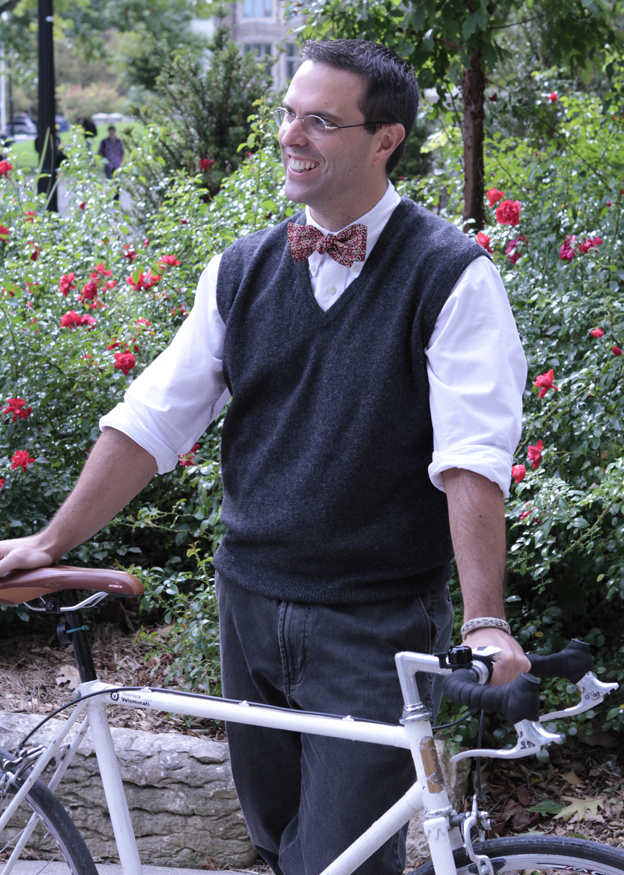What do we mean when we say ‘sustainability’?

'It became abundantly clear that nobody had a clear sense of what [sustainability] meant,' says associate professor Michael Egan, a recent guest on the Sustainable Times Podcast.
From federal politics to grassroots activism, there’s no mistaking the fact that “sustainability” is everywhere. But where does the term come from, and are we using it correctly?
That’s the focus of a recent Sustainable Times Podcast featuring Michael Egan, associate professor in the Department of History and a notable campus cycling advocate. The interview begins at the 15:55 mark.
Egan — whose research interests include the intersection of science, public policy and environmental activism — tells host and McMaster alumnus Matthew Sweet that he became interested in researching the word “sustainability” while attending various academic conferences during the early 2000s.
“It became abundantly clear that nobody had a clear sense of what it meant,” he explains during the show. “Being the historian, what I wanted to do was go back and sort of explore the history of this idea … this new environmental language, if you like.”
During the hour-long episode, Egan and Sweet discuss everything from the 17th century roots of the word in pre-industrial England to its current place in global economic theory, including the landmark “Our Common Future” United Nations report on sustainable growth, published in 1987.
Are we promoting sustainability by using reusable grocery bags and sorting our recycling? Do major companies with “green” initiatives support sustainable growth? It’s complicated, explains Egan.
“It’s no secret that it’s an appealing term,” he says during the podcast. “Sustainability just sort of means we can maintain where we are right now … The problem, of course, is that based on the Canadian standard of living, for example, if everybody on the planet was living at our degree of affluence and consumption, we’d need five planets — which we don’t have.”
Speaking with the Daily News on Monday, Egan stressed the importance of interdisciplinary research when it comes to implementing new sustainability measures. “It’s an area of study that requires a great deal of input from students in the humanities,” he says. “You need to have cultural and historical context as well. You can’t just send a team of engineers into the field and say, ‘fix this.'”
Other episodes of the Sustainable Times Podcast, produced by Sociology graduate Matthew Sweet, can be found here.

